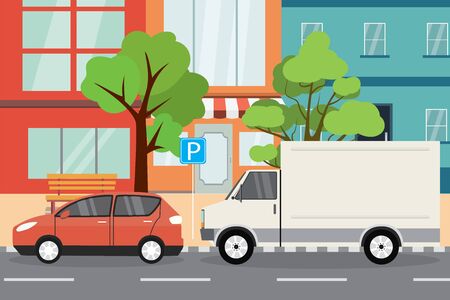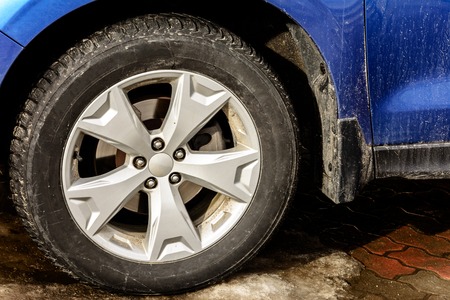Everyday Encounters with Tyre Punctures on Indian Roads
If you have ever travelled on Indian roads, you will know that tyre punctures are not just an occasional inconvenience—they are a part of daily life. From the bustling streets of Mumbai and Delhi, where auto-rickshaws, two-wheelers, and cars jostle for space, to the long stretches of rural highways winding through states like Uttar Pradesh or Tamil Nadu, punctured tyres are a common sight. In urban areas, the constant stop-and-go traffic, unexpected debris, and poorly maintained roads often lead to sudden punctures. Meanwhile, in villages and smaller towns, potholes and sharp stones are the usual culprits. For most Indian commuters—whether they are office-goers navigating city lanes or truck drivers hauling goods across state borders—a flat tyre is almost a rite of passage. The sheer volume of vehicles combined with challenging road conditions makes tyre punctures a routine challenge that everyone has learned to expect and deal with as part of their everyday commute.
Types of Tyre Repair Services: Mobile Repair Vans to Roadside ‘Puncturewalas’
India’s landscape of tyre puncture and repair services is as diverse as its people and cities. The country’s unique mix of tradition, innovation, and the ever-present hustle is reflected in how commuters deal with unexpected flat tyres. Let us take a closer look at the spectrum of service providers that keep India moving, from the humble roadside puncturewala to modern mobile repair vans.
The Classic Roadside Puncture Shop
The iconic puncturewala, often found under the shade of a tree or makeshift tin shed, is a familiar sight across urban and rural India. These local heroes operate with minimal equipment—usually a hand pump, patch kit, and basic tools. Their deep knowledge of Indian roads and quick fixes offer not just repairs but also a slice of local conversation and community connection. Often open long hours, their services are affordable and accessible to all kinds of commuters—from auto-rickshaw drivers to delivery boys.
Emerging Mobile Repair Vans
In metro cities like Mumbai, Bengaluru, and Delhi NCR, the rise of mobile tyre repair vans signals adaptation to fast-paced urban life. These service providers use GPS-enabled vans equipped with advanced machinery for on-the-spot repairs and replacements. Customers can call or book via apps, making it convenient for those stuck on busy highways or within gated communities. While they cater mainly to car owners and premium two-wheelers, their presence is growing thanks to increasing awareness about safety and efficiency.
Comparison Table: Types of Tyre Repair Services in India
| Service Type | Location | Accessibility | Tools/Equipment | Cost Range (INR) | Typical Users |
|---|---|---|---|---|---|
| Puncturewala (Roadside) | Road junctions, markets, highways, villages | Very High – Walk-in/drive-in anytime | Hand pump, manual patch kits | 50–150 | Cyclists, bikers, autos, small cars |
| Mobile Repair Van | Cities & select highways | Moderate – On-call/app booking | Compressor, digital tools, spare tyres | 200–600+ | Cabs, private car owners, premium bikes |
| Manned Tyre Shops/Dealerships | Urban areas, near petrol pumps/malls | Moderate – Shop hours apply | Advanced machinery & spares | 100–500+ | Cars (mid-range & above), fleet vehicles |
Cultural Adaptation on Indian Roads
This blend of old and new shows the ingenuity of Indian service culture—where resourcefulness meets rising expectations for convenience. Whether you rely on a trusty bhaisahab puncturewala outside your colony gate or an app-based van during monsoon traffic jams, tyre repair in India embodies flexibility rooted in everyday realities. This system supports not only personal mobility but also the countless livelihoods connected with India’s bustling roads.

3. Quality, Costs, and the Jugad Spirit
When it comes to tyre puncture and repair services in India, the spectrum of quality and cost is as diverse as the country itself. From upscale service centres in metropolitan cities like Mumbai or Bangalore to roadside puncture shops tucked away in small towns and highways, each option presents its own unique set of trade-offs. The price for a basic puncture repair can range from as little as ₹50 at a local roadside shop to ₹500 or more at an authorised service centre, with differences not only in material quality but also in technique and reliability.
The Indian concept of ‘jugad’—an approach rooted in resourcefulness and creative problem-solving—permeates every aspect of tyre repair culture. Often, mechanics rely on innovative hacks and makeshift tools to get vehicles back on the road quickly. For example, a cycle pump might be ingeniously adapted for car tyres, or old rubber might be repurposed to patch multiple holes. This ‘make-do’ attitude reflects both necessity and resilience, particularly when time or money is tight.
However, while jugad delivers immediate relief and keeps journeys going, it sometimes comes at the expense of long-term safety or durability. Many urban commuters accept these quick fixes as a way of life, weighing convenience against the risk of recurring flats. On the other hand, growing environmental awareness and urban affluence are slowly shifting preferences towards more sustainable repairs using better materials, even if they come at a higher upfront cost. In this evolving landscape, jugad remains a celebrated cultural hallmark—but one that is constantly being redefined by economic realities and changing urban aspirations.
4. Environmental Effects: From Discarded Tyres to Puncture Patches
When it comes to the tyre puncture and repair industry in India, environmental concerns often take a backseat to day-to-day convenience. Yet, the reality is that every puncture repaired or tyre discarded leaves an imprint on our environment. In Indian cities and towns, the fate of used tyres varies greatly. Many are reused until they are completely worn out—a testament to Indias culture of jugaad (resourcefulness)—while others end up dumped by roadsides, in empty plots, or even burned for fuel, causing serious air and soil pollution.
Tyre Disposal and Reuse: The Indian Context
The table below presents common ways used tyres are handled across India:
| Method | Description | Environmental Impact |
|---|---|---|
| Reuse/Retreading | Tyres are retreaded or repurposed for carts, swings, or construction | Reduces waste but may not be energy efficient |
| Informal Burning | Tyres burned for fuel in brick kilns or road construction | Releases toxic fumes; major contributor to air pollution |
| Landfill Dumping | Tyres dumped in landfills or open grounds | Long decomposition time; breeding ground for mosquitoes |
The Role of Repair Shops in Environmental Stewardship
Puncture repair shops—often called ‘puncturewalas’—are found at every street corner in India. Most still use traditional methods with rubber patches and adhesives, which can be cheap but not always eco-friendly. The adhesives often contain chemicals that are harmful if leached into soil or water bodies. Awareness about proper disposal is low, leading to a cycle where old patches and tubes end up as street litter or mixed with regular waste.
The Rise of Eco-Friendly Materials and Practices
Fortunately, there is a slow but steady shift towards greener alternatives. Some urban centres now see workshops adopting eco-friendly puncture patches made from recycled rubber or bio-based materials. These shops also encourage customers to recycle old tubes and tyres through collection drives or tie-ups with recycling facilities. However, such practices are still rare outside metropolitan areas.
A Glimpse at the Green Transition
| Sustainable Practice | Status in Indian Market |
|---|---|
| Recycled Rubber Patches | Available in select urban shops; limited rural presence |
| Tie-ups with Recycling Plants | Mainly found in metros like Mumbai and Bengaluru |
| Awareness Campaigns for Safe Disposal | Mostly NGO-led initiatives; sporadic government support |
In conclusion, while Indias tyre puncture industry remains deeply rooted in traditional practices and jugaad innovation, there is growing recognition of its environmental impact. A shift towards sustainable repair materials and better disposal methods could pave the way for cleaner streets and a healthier urban ecosystem, provided both consumers and service providers embrace these green changes.
5. Safety Hazards and the Need for Awareness
When navigating the streets of India, from the bustling lanes of Delhi to the highways outside Bengaluru, tyre puncture repairs are a regular part of life for vehicle owners. However, the informal nature of most repair services brings with it a host of safety hazards that often go unnoticed by the everyday commuter.
Subpar Repairs: A Risk on Indian Roads
One of the most pressing dangers is the prevalence of substandard repair jobs. Many roadside mechanics, though skilled in their own right, often lack access to proper tools or quality materials. This leads to quick fixes that might seem functional but compromise tyre integrity. When such tyres are put back on the road—especially on high-speed expressways—the risk of blowouts and accidents increases manifold. In a country where road safety is already a significant concern, these hidden risks can have fatal consequences.
Fake Puncture Scams: Trust Issues in the Informal Sector
Another common issue is fake puncture scams. Unscrupulous service providers sometimes exploit unsuspecting customers by claiming multiple punctures or damages that don’t exist, charging extra for unnecessary repairs. Not only does this erode trust within communities, but it also means that genuine safety issues may be overlooked amidst fabricated ones. Such practices thrive due to lack of regulation and public awareness.
Lack of Standardisation: The Unseen Danger
The absence of standardisation across the informal sector further exacerbates these problems. With no uniform guidelines or certification processes, there is little assurance regarding the quality or reliability of repairs. This patchwork system leaves vehicle owners vulnerable and contributes to a cycle where safety becomes secondary to convenience and cost.
The Importance of Public Awareness and Safe Practices
Addressing these challenges requires a collective effort towards raising public awareness about safe repair practices. Vehicle owners should be educated to ask questions, seek transparency, and understand basic signs of improper repairs. Meanwhile, encouraging adoption of best practices—even among informal service providers—can help create a culture where safety isn’t compromised for speed or savings. In India’s dynamic urban landscape, prioritising tyre safety is not just about preventing breakdowns; it’s about safeguarding lives and fostering sustainable mobility for all.
Sustainable Shifts: The Road Ahead for Tyre Repair in India
As Indian cities evolve, so does the landscape of tyre puncture and repair services. The once-ubiquitous roadside mechanic with a hand pump is now sharing space with innovative trends that reflect both urban aspirations and environmental consciousness.
App-Based Repair Bookings: Convenience at Your Fingertips
Technology is making its mark on this essential service. App-based platforms are emerging in metros like Bengaluru, Mumbai, and Delhi, allowing users to book a tyre repair or replacement with just a few taps on their smartphones. These digital solutions not only save time but also bring reliability and transparency—qualities much needed in the informal service sector. With real-time tracking, verified mechanics, and digital payments, urban dwellers are embracing these changes for peace of mind during emergencies.
Women Mechanics: Breaking Stereotypes on City Streets
Another noticeable shift is the growing presence of women as tyre puncture mechanics—a field traditionally dominated by men. This change speaks volumes about evolving gender roles in urban India and is inspiring more inclusive workplaces. Women-led repair shops are being welcomed by customers who appreciate skill and professionalism over outdated stereotypes, while NGOs and training programs are empowering more women to join this trade.
Eco-Conscious Entrepreneurship: Greening the Tyre Trade
Sustainability is becoming a key concern for tyre repair businesses. Forward-thinking entrepreneurs are adopting eco-friendly practices such as responsible disposal of old tyres, recycling rubber waste into useful products, and using non-toxic sealants for repairs. Some workshops even offer upcycled tyre accessories or donate used tyres to playgrounds and construction sites—turning waste into resources rather than landfill.
Shaped by Urban Change
As cities expand and roads become more congested, the demand for accessible, reliable, and sustainable tyre services will only increase. Urbanisation brings new challenges—like limited parking spaces for pop-up repair shops—but also opportunities for innovation. The future points toward a blend of tradition and technology: skilled hands wielding both spanners and smartphones, women mechanics inspiring next generations, and green practices ensuring our journeys don’t cost the earth.
Ultimately, the road ahead for India’s tyre puncture repair ecosystem is one of adaptation—fuelled by urban realities, societal shifts, and a collective drive towards a cleaner, more inclusive future.


